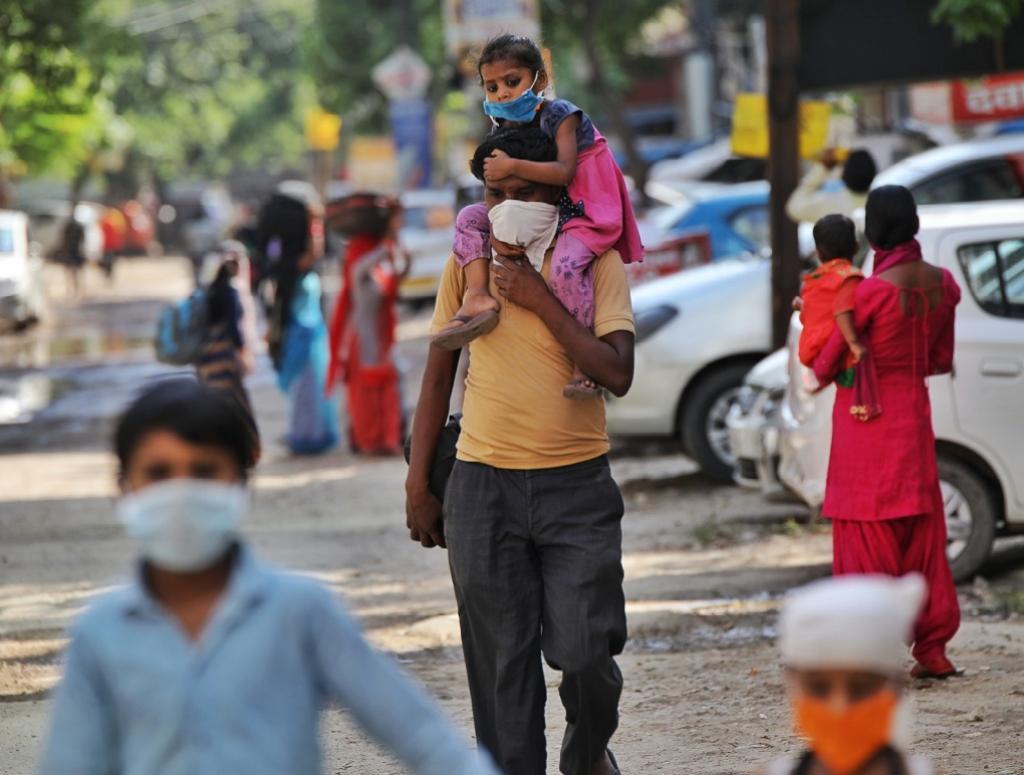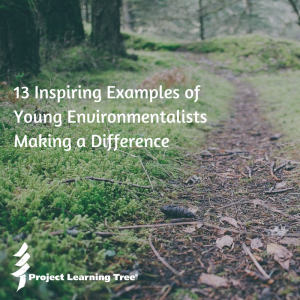
Climate change is a threat to Indigenous Peoples' rights, and their health. The impacts of climate change are disproportionately affecting Indigenous communities. These impacts can be felt at both the individual and regional levels. Indigenous peoples have unique ways that they understand climate change. Their knowledge systems have been well documented in the academic literature. They are continually updated with each new generation. Yet Indigenous communities continue to be geographically isolated and underrepresented in mainstream news media. They are often denied the opportunity for participation in public debates and policies on climate change.

Research into climate change coverage in high-income countries has shown that Indigenous issues and climate change are often underrepresented. Although there are some positive aspects of climate change that have been discussed in articles, most articles tend to be negative. Therefore, efforts to combat climate change must take into account the needs of Indigenous Peoples as well as their worldviews. The mainstream media provides an opportunity for Indigenous peoples, including Indigenous Peoples, to challenge dominant narratives. The study looked at 92 newspaper articles from high-income countries over the past twenty years.
A variety of articles were found by searching for climate change. These included articles that assigned responsibility for climate change to Indigenous communities, articles discussing the economic costs of responding to climate change, and articles describing the benefits of responding to climate change. In general, climate change was most often described as having a significant and ongoing impact. On the contrary, benefits of responding were more often described as positive.
Many articles focused on Inuit experiences of climate change. One journalist implied Inuit communities were responsible to endangering polar bears by resisting hunting bans. A second article focused on the Inuit's experience with Arctic ice melting. Both articles contained overtly racist and oversimplified frames of Indigenous issues. Also, articles were written about Indigenous communities or Indigenous peoples. The Dene and Navajo were the most prominent. The third article dealt with the potential consequences of government policies on Indigenous communities.

Other studies have highlighted the important role that media can play in shaping public understanding of climate change. Media coverage can have a substantial impact on Indigenous peoples' accessing funding streams and resources. It can also influence how the general public views Indigenous issues. Although mainstream media play a major role in portraying Indigenous peoples, there have been few studies. Some studies have shown the negative portrayal of Indigenous Peoples in mainstream media is incorrect and often focuses more on the negative than the positive. Mainstream news media frequently perpetuates racism in their portrayal of Indigenous peoples. They fail to recognize the unique and complex nature Indigenous Peoples' contribution to the planet.
It is essential that Indigenous Peoples and Nations engage in additional work to create Indigenous-led climate policy. These policies should be developed with tribal leaders.
FAQ
How can the world move towards a more sustainable future in light of the challenges posed by climate change?
Sustainability is the ability for future generations to meet their current needs without compromising their ability to do the same. An urgent need exists to act to eliminate our dependency on finite natural resources and to shift towards a more sustainable method of using them.
To move towards a more sustainable future, it is important for us to reconsider our current models of consumption and production, as well as our dependence on natural resources such as fossil fuels. We need to find new technologies, renewable energy sources, and systems that can reduce harmful emissions and still meet our daily needs.
It is important to adopt an integrated approach to sustainability. This includes all aspects of production including materials, waste management and reuse strategies as well as energy usage in transport and industry. There are many solutions that can be found, such as the utilization of renewable energy, like solar, winds, and hydropower, better waste management, higher efficiency in agriculture, improved transportation networks, green building regulations and sustainable urban planning.
For us to achieve our goal, we must make behavioral changes across all segments of society. Education programs are necessary to help people understand the climate change issues and how they can make a positive contribution towards a more sustainable world.
Only through cooperation between citizens, business leaders, and governments will we ever be able make substantial progress towards creating a sustainable world for future generations.
What impact does politics have on global efforts to tackle climate change?
Climate change has become a highly politicized topic that has caused great divisions among governments, nations, and individuals. The political stances taken by different actors will impact the implementation measures to combat climate changes. It is becoming difficult to reach consensus on global efforts for addressing this urgent environmental crisis.
The overwhelming majority of scientists agree with the fact that human-generated global warming is real. It is urgent for action to address it. These issues are often subject to political interference that can hamper global cooperation in order to implement sustainable energy practices, preserve natural habitats, find viable technological solutions and other interventions related to climate change.
Many governments in the world want to protect their economic interests, and enforce measures that limit business activities. This often conflicts with the regulations that experts recommend to address climate change efficiently. Without strong commitments by all countries involved and large-scale international action it is difficult for any state or group to adequately address climate changes through legislation.
Different power dynamics can make it difficult to achieve full consensus on the best ways to address climate change. The countries with greater economic power tend to nominate their own representatives to represent them in international bodies that are responsible for the environment. This can lead to biased discussions between the perceived interests of the country and the collective interest of all parties. At both the national and international level, there have been extensive discussions about potential side effects of radical changes like geoengineering.
A grassroots movement has also struggled against powerful opposition, including corporate ownerships as well-funded lobbyists trying to keep their industries politically favorable. This is especially true when it comes funding research into alternative energy production and enforcing mandates for renewable energy technology. Individual governments need to be clear about the potential rewards and outcomes of making valid progress on the issue. They cannot seek short-term spectacles or gains to gain public support.
To mitigate the current environmental crisis, it will be crucial that resources are properly distributed and political divisions between countries are not overlooked.
What is the climate impact of land use and deforestation?
Deforestation and land use change have a direct and immediate impact on the climate. If trees are cut down, or burned, carbon dioxide, one the most important greenhouse gases, is no longer absorbed. Carbon dioxide is therefore less removed from the atmosphere when trees are deforested or burned for agricultural purposes.
Changes in land usage can also cause more greenhouse gasses to be released into the atmosphere. For example, when forests are replaced with agricultural lands for livestock production, fertilizer, and pesticide use may increase emissions of nitrous oxide and methane. Additionally, clearing soils rich in carbon can increase the exposure; soils that are disturbed by farming activities or turned over can release more carbon dioxide into our atmosphere.
The impacts of deforestation and land-use change extend beyond just increased greenhouse gas emissions; it can also have an impact on regional air quality. For instance, smoke from burning events associated with deforestation has been linked to decreased visibility as well as health concerns such as asthma and other respiratory ailments. The cumulative effects of these changes in local air quality could have an impact on global climate change. Higher temperatures can be caused by more sunlight reaching the Earth's surface due to lower aerosol particles.
In conclusion, deforestation and land-use change have resulted in a significant contribution to increased levels of global greenhouse gas emissions and have had negative impacts on local air quality that further contribute to climate change. Reducing these practices should be a high priority if serious efforts toward mitigating climate change are to take place promptly.
What is the role of greenhouse gases in climate change?
Climate change is influenced by greenhouse gases. They act like an invisible blanket surrounding the Earth, trapping the infrared radiation that warms it and keeping it from getting too hot. Without them, the Earth would be much colder today than it is today.
Greenhouse gases are generated through human activity, such as burning fossil fuels or other industries that produce emissions. These activities are increasing in number, which means that more heat is trapped in our atmosphere. This can lead to extreme weather events and rising temperatures.
Carbon dioxide (CO2), the most potent greenhouse gas, is released by fossil fuels like gas, oil, and coal. Methane (CH4), nitrous oxide (N2O), and fluorinated gases (F-gases) are also major contributors to climate change.
The concentration of greenhouse gases has increased significantly since preindustrial times due to human activities. This has led worldwide warming and increased temperatures in the oceans as well as all over the planet. It is also leading to changes such as intense storms and droughts; melting glaciers; and rising seas.
To avoid further damage from climate change, humans need to reduce their emissions of greenhouse gases by transitioning away from fossil fuels towards renewable energy sources like solar or wind power. Reforestation and other agricultural practices can be used to absorb more CO2 from air. These activities will help lower atmospheric concentrations of greenhouse gases and create a healthier environment for all life on Earth.
Statistics
- This source accounts for about 10% of all the water that enters this highly productive farmland, including rivers and rain. (climate.nasa.gov)
- Fossil fuel production must decline by roughly 6 percent per year between 2020 and 2030. (un.org)
- Indigenous peoples and local communities receive less than 1% of all climate funding despite scoring wins for people and nature Africa's broken food markets must be fixed to tackle hunger (climatechangenews.com)
- This source accounts for about 10% of all the water that enters this highly productive farmland, including rivers and rain. (climate.nasa.gov)
- According to the 2014 report on Climate Change Impacts, Adaptation, and Vulnerability (page 8) from the United Nations Intergovernmental Panel on Climate Change, governments at various levels are also getting better at adaptation. (climate.nasa.gov)
External Links
How To
How to integrate sustainable practices into your everyday life to fight climate change
You can implement sustainable practices in your daily life by reducing your consumption. Don't buy new items every single day. Instead, shop secondhand. Additionally, eating vegetarian meals once or twice a week can help reduce the amount of methane released into the atmosphere from livestock production. Turn off lights whenever you are leaving a room in order to conserve energy.
One way to combat climate change, is to decrease emissions from transportation sources like planes and cars by carpooling. In place of traditional fossil fuels, we can choose to use renewable power sources such solar panels to generate electricity at our homes. It is crucial to support measures at the policy level that encourage clean air regulations in order to make climate change mitigation work. In conclusion, it is extremely beneficial to work with others on issues like ending plastic pollution or deforestation. It creates more citizens who are aware and will act upon that knowledge.